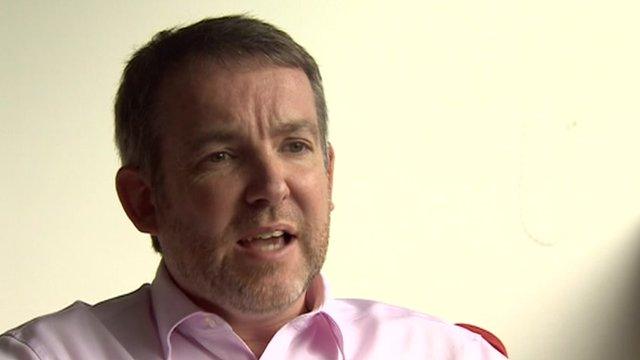BBC Scotland channel prompts 'insult' to Wales claim
- Published
Wales' BBC viewers "being short-changed", claims Labour MP Kevin Brennan
The BBC has been accused of insulting Wales after it announced a new TV channel and funding for Scotland.
The Scottish channel, which will receive £19m new cash and have a nightly 21:00 news show, has prompted criticism from Welsh politicians.
The announcement came after the BBC said it was investing an extra £8.5m a year in Welsh TV programmes - short of the £30m demanded by politicians.
BBC Wales said the needs of viewers in Scotland were "different".
Tory AM Darren Millar tweeted, external that it made the funding for Wales look like an "insult", while Labour shadow culture minister Kevin Brennan said, external it seemed that BBC Wales was "being short-changed compared to Scotland".

What is in the BBC Scotland deal?
A new channel with a £30m budget - made up of £19m new money and £11m from BBC2 programmes currently made for Scotland - broadcast from 19:00 every evening
£1.2m for Gaelic-TV service BBC Alba
£20m to help meet targets for production of network programmes in Scotland
80 new posts for journalists, with a new nightly news programme covering international, UK and Scottish news

Under the Welsh package announced on Tuesday, the BBC said it would invest an extra £8.5m a year in English-language television programmes for Wales.
The BBC said the investment was a 50% increase and would fund new drama, comedy and entertainment programmes.
Bethan Jenkins, assembly culture committee chair and a Plaid Cymru AM, said she did not want to begrudge the Welsh deal but said different nations would "feel rightly aggrieved" at the different levels of investment.
Ms Jenkins' culture committee called for £30m extra to be spent on BBC English-language drama and broadcasting earlier this month.
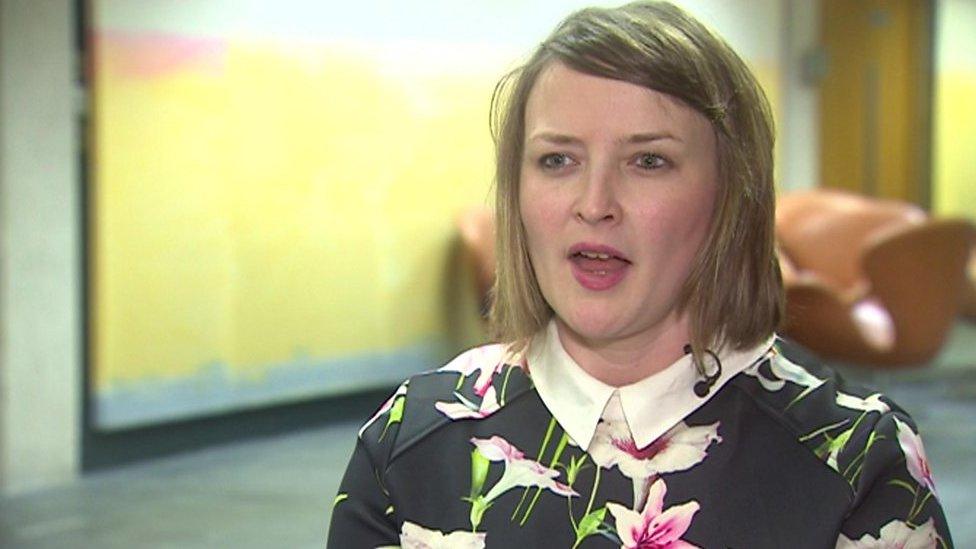
Bethan Jenkins questioned how the BBC was making decisions about different UK nations
Suzy Davies, Conservative AM for South Wales West and also a committee member, described the "sheer imbalance" as an "affront to Wales' journalists and to licence-fee payers".
But Alun Davies, Minister for Lifelong Learning and Welsh Language who has policy responsibility for broadcasting, said the creation of a separate channel would not answer the needs of Wales.
"A separate channel with tiny audiences will not bridge the current information deficit," he said.
"We need a comprehensive service on all of the BBC's existing channels and outlets which meet Wales' needs in news, sport and culture."
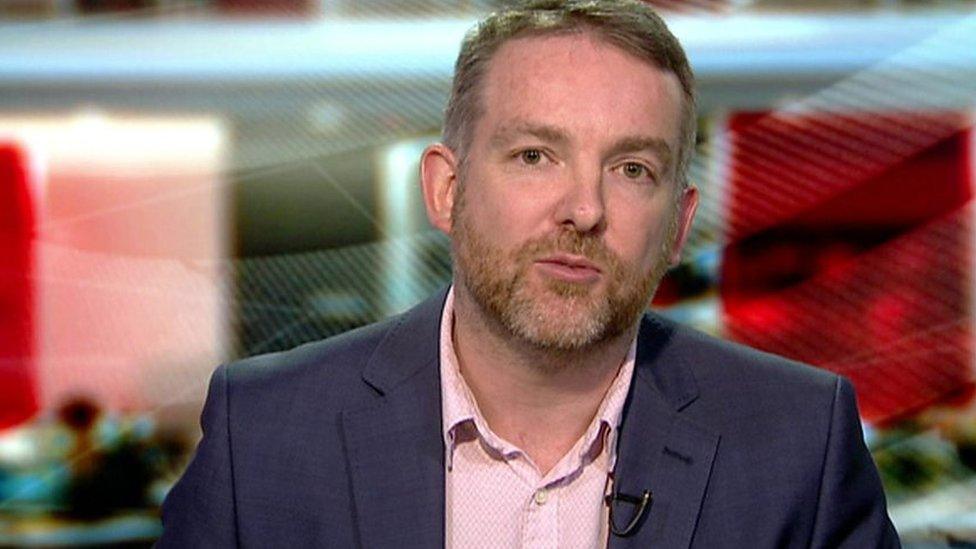
Rhodri Talfan Davies said the Welsh funding deal was a substantial settlement
Speaking on BBC Radio Cymru, BBC Wales director Mr Davies said the Welsh funding deal was a substantial settlement and said political pressure played its part in both nations.
"There will be an announcement in due course about how the £8.5m will be spent. I do not spend my time comparing directly with what is happening in Scotland," he said.
"In Wales, we have intentionally chosen to spend the money on BBC One and BBC Two.
"We know through engaging with the audience that those are the channels where they want to see Wales being reflected."
A spokesman for the National Union of Journalists said: "Wales is being treated disgracefully, as there are no apparent plans for a similar channel or investment here.
"We call on BBC Cymru Wales to revisit the package announced yesterday and return with more imaginative and far-reaching proposals, similar to the ones being planned for Scotland."
A BBC spokeswoman said "the needs of audience in Scotland are different" and "as a result, different choices have been made that then require different levels of funding".
She said: "The BBC already has a very strong presence in Wales and we know audiences watch more BBC TV than any other part of the UK.
"We're already investing significantly more in Wales on producing programmes for the whole of the UK than our targets, and we've announced measures to make sure that output reflects Wales more strongly."
- Published21 February 2017
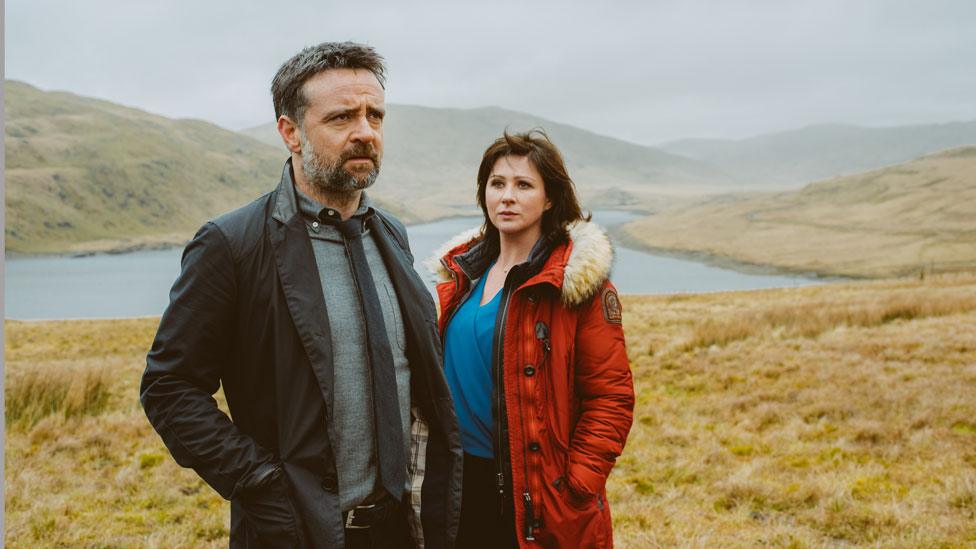
- Published21 February 2017

- Published15 September 2016
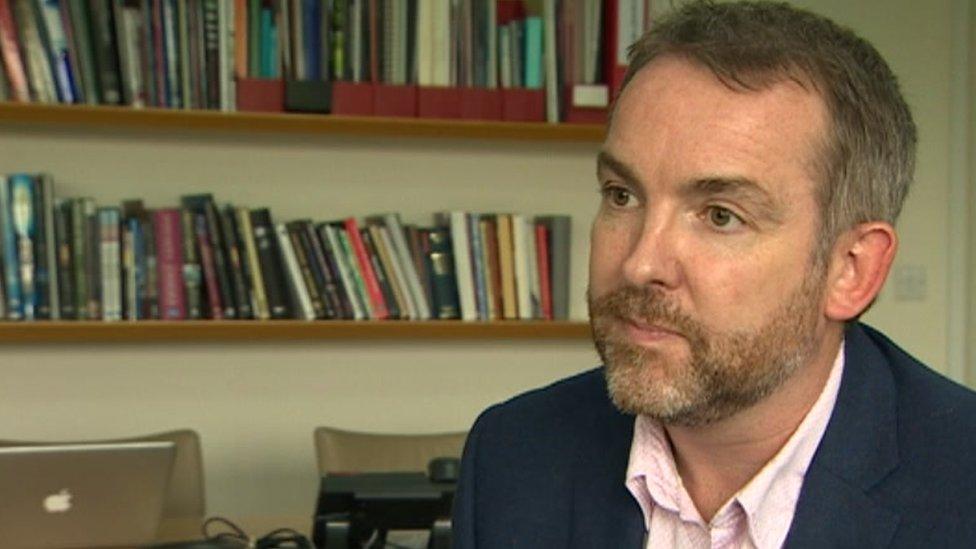
- Published12 July 2016
